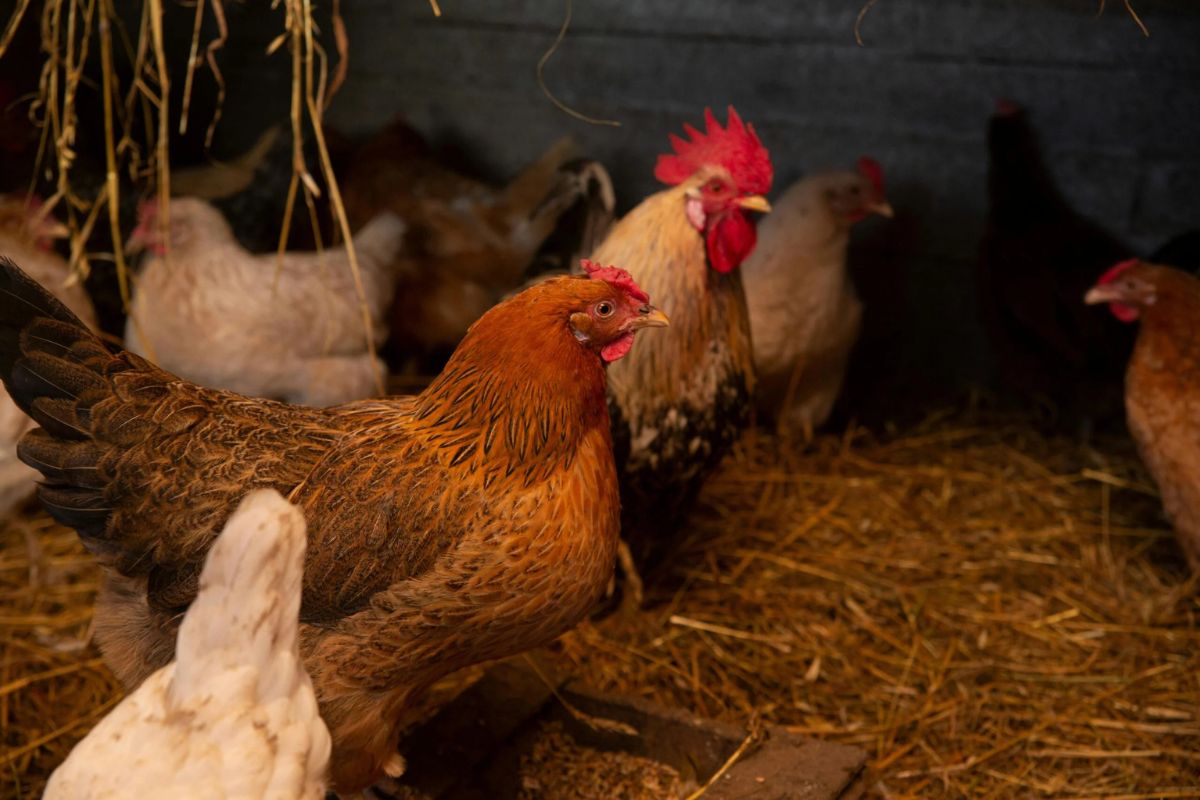Funding boost for innovative UK projects to improve poultry welfare

Researchers at the University of Chester are working to improve poultry welfare, production, and sustainability in the industry with innovative solutions after two partnership projects were awarded millions in UK Government funding.
Experts from the Centre for Research into Environmental Science and Technology (CREST) at the University are part of the FeedFlow initiative, led by insect farming innovator Flybox®, which has been granted more than £3 million by Innovate UK from DEFRA’s (the Department for Environment, Food and Rural Affairs’) Farming Innovation Programme.
“Working alongside a phenomenal cohort of industry leaders and academic institutions, Flybox® is confident that this project, which leverages advanced AI (Artificial Intelligence) and Black Soldier Fly (BSF) larvae, will deliver exceptional results to tackle challenges in health, welfare, and sustainability,” said Larry Kotch, CEO and Co-Founder of Flybox®.
Partners also include UK poultry-tech start-up FLOX, Nottingham Trent University, Courteenhall Farms, Menchine Farm, and Clarke Group Construction. The initiative integrates AI-powered monitoring, using Life Cycle Analysis (LCA) and BSF larvae feed to enhance poultry welfare, optimise production efficiency, and promote more sustainable approaches in the poultry industry.
The FeedFlow project uses an AI-based platform developed by FLOX which is designed to unify data streams from farms and processing factories. It propels precision agriculture by delivering real-time data on flock welfare and early warnings of potential issues. Alongside this, fortified BSF larvae delivers a rapid nutrient boost that tackles health challenges more effectively than traditional feed interventions, and the LCA, led by Jess Callaghan and Professor Julieanna Powell-Turner from the University of Chester, is assessing the Global Warming Potential, to prevent a race to the bottom in emissions.
CREST at the University of Chester has also been awarded a £1.5 million grant from the Government’s Transforming Food Production Challenge Fund, through Innovate UK, for the NetFLOX360 partnership project. The University is part of the NetFLOX360 consortium which, in line with the FeedFlow project, aims to ‘Bridge Poultry Farming Data with Factory Insights Using AI for Sustainable Growth’. Led by FLOX, and the UK’s largest poultry producer, 2SFG (2 Sisters Food Group), NetFLOX360 will further develop the innovative, FLOX AI-based platform for large-scale poultry entities.
With the poultry supply chain currently hampered by a lack of real data across the entire value chain, Dr Kennedy Mutua at CREST said NetFLOX360 sought to fill this gap. It will enable the integration of algorithms into a cloud-based platform while engaging with poultry producers and processors, researchers, and policymakers, to provide a tool that offers easy access and informed decision-making based on real data.
Imtiaz Shams, the CEO of FLOX, highlighted how intelligent technologies were making a real difference to poultry farmers to increase their productivity while promoting poultry welfare and sustainability. He outlined how through the FLOX Machine Vision, real-time insights with producers and processors can be shared along the value chain through dashboards.
Prof Julieanna Powell-Turner, Associate Dean of Research and Innovation at the University of Chester, explained more about the importance of the projects. She said that despite advancements in production efficiency, the poultry industry faced persistent issues, including poor leg health, high mortality rates, and variable feed efficiency, while poultry production contributed notably to ammonia emissions in the UK. She outlined how it was recognised that UK production systems must evolve and the two projects and their forward-thinking approaches aimed to set new standards for welfare and efficiency in the industry.
Discussing the FeedFlow project, Prof Powell-Turner welcomed the funding and described the environmental benefits of the approach: “The use of BSF larvae offers significant potential to reduce global warming by efficiently converting organic waste into high-protein feed, which in turn lowers greenhouse gas emissions and promotes sustainable waste management.”
Professor Emily Burton, Director of the Safety and Sustainability Research Theme at Nottingham Trent University added: “As the environmental cost of food production becomes of increasing concern to consumers, quantifying the impact of interventions via LCA analysis is becoming an essential tool in driving forward change: interventions usually cost money, so quantifying the benefit helps in decision-making.”
Discussing the NetFLOX360 initiative, Prof Powell-Turner said: “We are delighted to be successful with our funding application to take forward the project and deliver innovative solutions that will enable poultry producers and processors to monitor the welfare of their flocks while detecting environmental hotspots along the value chain. The tool will leverage real data-driven Life Cycle Assessment for poultry production, from cradle to farm gate.”










